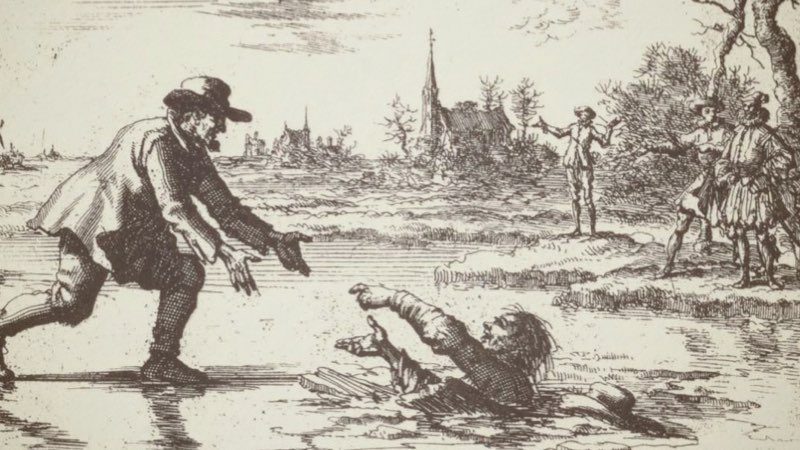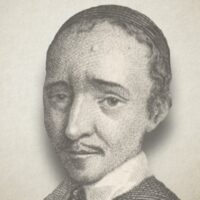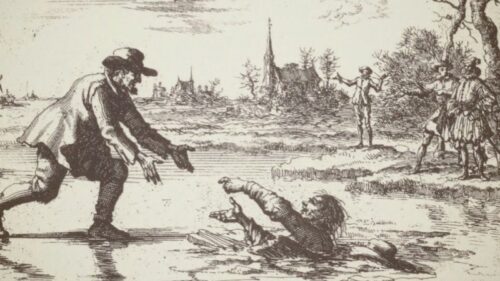
77. Maturus, Sanctus, Blandina, and a Youth from Pontus
Maturus, Sanctus, Blandina, And A Youth From Pontus, Most Miserably Tormented, On The River, Rhone, About The Year 172
It is manifest from the ancient writers, that in and about the time that Attalus was slain, various other martyrs were likewise put to death for the sake of Jesus Christ, almost in the same manner, or, at least, with equally great torments. Some of these martyrs are not mentioned, while others are, namely, Maturus, Sanctus, Blandina, and a youth of fifteen years, from Pontus. Touching the circumstances of their suffering and death, we find that, in substance, it occurred, in the following manner:
First, three of the aforementioned persons, namely, Maturus, Sanctus, and Blandina, were exceedingly and dreadfully tormented, especially Blandina, for whom the others stood in great fear, that, not being able to endure the pain, she might be in danger of denying Christ. But she was so steadfast in all her sufferings that the hands of the executioners grew tired before her heart would faint. It is a cause of great astonishment, what Eusebius Pamphilius has written concerning her, namely, that the executioners began early in the morning, and continued tormenting her all day until evening, so that they were much surprised, how it could be possible that life was not yet extinct in her. However, he explains this by saying that as often as she repeated her confession, crying: “I am a Christian,” her heart was strengthened, so that she was again enabled to endure the pain.
Sanctus, who was a deacon, or one who ministered to the poor, was tormented with red-hot plates of copper, which were applied to his belly. Being questioned, in the meantime, in regard to his name, parentage, and native country, he named neither of these, but simply said: “I am a Christian; that is my name, my parentage, and my country; indeed, I am altogether nothing else than a Christian.” This inflamed the tyrants with unspeakable rage against him, and they continued to torment him on his whole body, to such an extent, that it was but one wound. But he remained fearless and undaunted; for the heat of the fire was tempered by the heavenly consolations of Jesus Christ, which he experienced in his soul.
Maturus was treated almost in the same manner, and remained equally steadfast. Having been thus dreadfully tormented, the aforementioned three persons were again cast into prison. Then they were again taken from the prison, and tormented once more; first Blandina, and then Maturus and Sanctus. The mode of torture was, according to Eusebius, by many stripes; but Abr. Mellinus states, “That they were scourged a second or third time, with all kinds of rods, as well as beaten with sticks, cudgels, and three-cornered and barbed splinters; and also, pinched, cut, carved and torn, with all sorts of hooks, cutting-knives, claws, pincers, and iron combs.” Finally, when many thousands had collected about the amphitheatre, Maturus and Sanctus were placed, in the same manner as the aforementioned Attalus, on iron chairs, under which a great fire was kindled, so that their flesh, lacerated by many stripes, was forthwith consumed by virtue of the fire; however, when the enemies of the truth saw that their spirit was immovable, they beheaded both of them.
Of Blandina it is stated that she was stretched out cross-wise, and tied to a stake, to be cast as food before the wild beasts; however, she was taken away again, and led into prison. But afterwards, on the last day of the games, she was again brought forth, together with a youth from Pontus (whom we have mentioned above), and who, by the command of the judge, had witnessed the suffering and death of the preceding martyrs, that it might strike terror into his heart. Being placed in the middle of the place of execution, before the Judge, they were commanded to swear by the gods, which they refused to do, reproving at the same time, the idolatry of the heathen. At this the heathen were much incensed, and again tormented them greatly, yea, so much so, that the youth, unable to endure it, gave up the ghost. Blandina rejoiced so greatly in the steadfastness of the departed youth, whom she had adopted as her son, as well as in the death of her faithful friends, who had already gone through the conflict, that, being beaten by the tyrants, she leaped for joy. Touching her death, it is stated, that she was roasted upon a gridiron, and afterwards wound in a net, thrown before bulls, which tossed her many a time high up with their horns, and then let her fall down again. She, however, not being dead yet, the judge commanded that her throat be cut, which was done; though others say that she was thrust through with a sword. Thus did this pious martyress, and the other three martyrs of Jesus end their lives, and are now awaiting the blessed reward which the Lord will give on the great day of recompense to all those who have suffered and fought even unto death, for His name’s sake.
Compare Euseb., lib. 5, cap. 1-3, edit. Dord., 1588, fol. 81-86 with Abr. Mell., 1st book, fol. 43, col. 2-4, about Blandina and Ponticus; also, fol. 44, col. 1,2, about Sanctus and Maturus. Also, Introduction, etc., fol. 38, col, 1,2. Also, /. Gys., 1657, fol. 17, col. 3, 4.
Thieleman J. Van Braght (1625-1664) was an Anabaptist who is best known for writing a history of the Christian witness throughout the centuries entitled “The Bloody Theater or Martyrs Mirror of the Defenseless Christians who baptized only upon confession of faith, and who suffered and died for the testimony of Jesus, their Saviour, from the time of Christ to the year A.D. 1660” (1660).
Thieleman J. Van Braght, Martyrs Mirror




